According to the National Academy for Sports Medicine, approximately 80% of the U.S. adult population will experience chronic lower back pain at some point in their lives.
With such a staggering number of adults afflicted, there is a dire need for exercises that both relieve and prevent chronic lower back pain.
Individuals who suffer from or are at risk for chronic lower back pain commonly possess a weak core. A weak core is the direct result of a sedentary lifestyle, inefficient movement patterns, and poor posture. Therefore, if your goal is to relieve or prevent chronic low back pain, it is necessary to stretch and strengthen your core musculature.
Suffering from a sore neck, back and shoulders? Get our mobility guide to ease pain and soreness.
Get The FREE Mobility Guide To Fix Your Pain Today!
[tweet_quote] A whopping 80% of the U.S. adult population experiences chronic lower back pain at some point in their lives. [/tweet_quote]
Specifically, you will want to focus on stretching and strengthening your local and global stabilization systems, which include the muscles that directly attach to and support the spine, and the muscles that directly attach the pelvis to the spine.
Having sculpted and chiseled abs is not enough to achieve lower back pain relief. Rather, you want to think of the core musculature as an intricate system that wraps around your body and works as a whole to support proper posture and optimal movement patterns.
Below, you will find exercises to directly stretch and strengthen your local and global stabilization systems. The purpose of these exercises is to relieve tension in your lower back, as well as to provide you with a strong core foundation, rather than increase the size of your core muscles.
To increase the activation of your local and global stabilization systems during the strengthening exercises, it is important to practice the drawing-in and bracing technique:
- Drawing-In: To perform the drawing-in technique, you will want to pull your lower abdominal muscles towards your spine while keeping your spine in a neutral position throughout the movement.
- Bracing: To perform the bracing technique, you will want to contract your core muscles and hold the contraction tightly throughout the movement.
Depending on the severity of your lower back pain, please consult your doctor before performing these exercises. Likewise, if you experience an increase in pain during or after performing these exercises, discontinue performance and consult your doctor.

Lower Back Stretches to Relieve Tension
1. Hamstring Stretch
Lie down on your back on a mat with your arms by your sides and your legs fully extended. Lift your left leg straight into the air so it makes a 90-degree angle with your torso and you can feel the stretch in your hamstrings. Support the leg with both of your hands. Hold for 30 seconds and repeat with the opposite leg. Perform 2-4 sets.
2. Knee to Chest Stretch
Lie down on your back on a mat with your arms by your sides and your legs fully extended. Lift your left leg off of the mat and bring it close to your chest. Feel the stretch in your glutes and lower back. Hold for 30 seconds and repeat with the opposite leg. Perform 2-4 sets.
3. Extension Stretch
Lie down on your stomach on a mat with your legs fully extended behind you. Prop up your torso by resting your weight on your forearms, and position your hands so your palms are facing down on the mat. Feel the stretch in your back and abdominals and hold for 30 seconds. Perform 2-4 sets.
4. Child’s Pose Stretch
Sit on your shins on a mat. Extend your arms straight above your head and bend at your hips to lower your torso towards the mat. Rest your palms face down on the mat while keeping your arms fully extended. Your head should be positioned so you are looking down towards the floor. Feel the stretch in your back and hold for 30 seconds. Perform 2-4 sets.
5. Twist Stretch
Lie on your back on a mat with your arms by your sides and your legs fully extended. Take your left arm and extend it so that it is perpendicular to your torso. Twisting at your torso and bending at your knees, bring your legs up and to the right so that your quads are perpendicular to your torso and a 90-degree angle is formed at the knee. Your legs should be stacked on top of one another. Feel the stretch in your back and hold the position for 30 seconds before repeating on the opposite side. Perform 2-4 sets on each side.
Lower Back Stabilization Exercises to Strengthen
6. Wall Sit
Stand with your back against a wall. Squat down by bending at your knees and walking your feet out until your quads are parallel to the ground and your knees form a 90-degree angle. Make sure your feet are shoulder-width apart and your toes are pointing straight ahead. Hold this position for 30 seconds. Perform 2-4 sets.
7. Bridge
Lie down on your back on a mat with your arms by your sides and your knees bent with feet flat of the floor, shoulder-width apart, and toes pointing straight ahead. This is your starting position. Keeping your head and upper back firmly on the ground, lift your butt until your back and the ground make a 45-degree angle. Lower your body to the starting position and repeat for 12-20 reps. Perform 2-4 sets.
8. Quadruped Arm & Leg Raise
Get down on your hands and knees on a mat. This is your starting position. Raise your left arm and extend it straight out in front of you while simultaneously raising your right leg and extending it straight out in back of you. Hold the position for 2-3 seconds before returning to the starting position. Repeat with the right arm and left leg. Perform 12-20 reps for 2-4 sets.
9. Side Plank
Lie on your left side on a mat. Prop up your torso by resting your weight on your left forearm (which should be perpendicular to your body) and position your feet so they are stacked on top of each other. Lift your body off of the ground so it forms a straight diagonal line. You can rest your right arm along the right side of your body. Hold this position for 30 seconds and then switch sides. Perform 2-4 sets on each side.


 How a High Fat Diet Transformed My Workouts (for the Better)
How a High Fat Diet Transformed My Workouts (for the Better)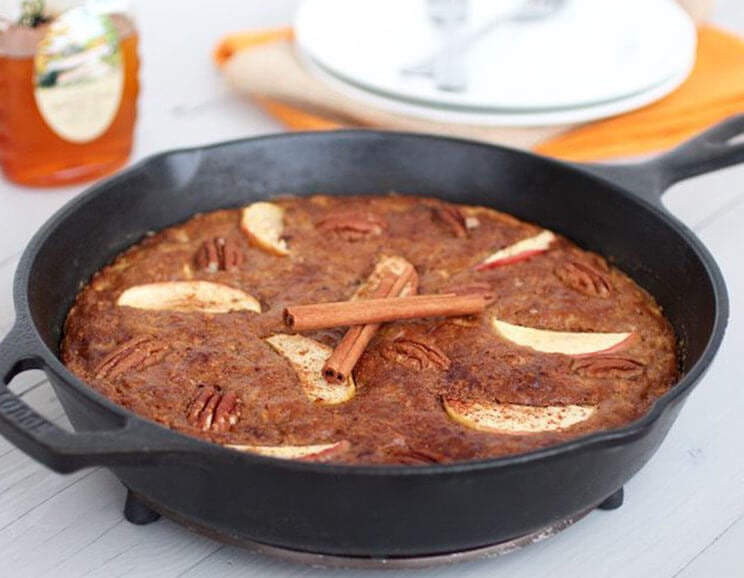
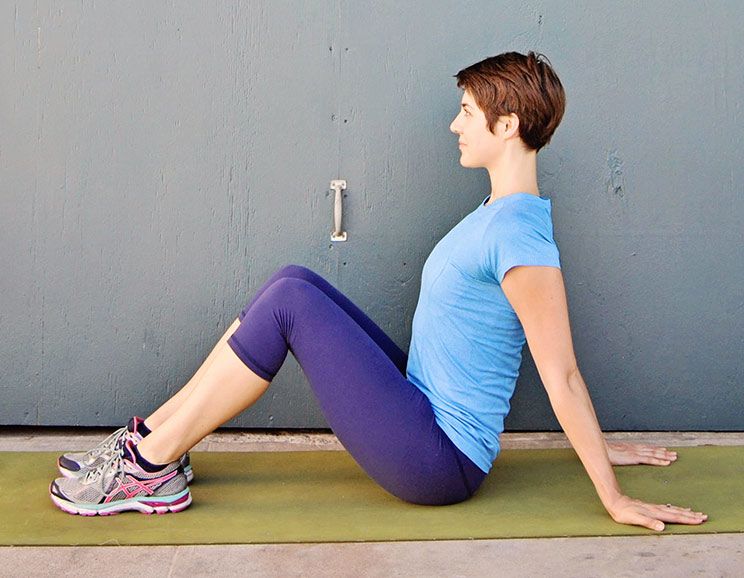
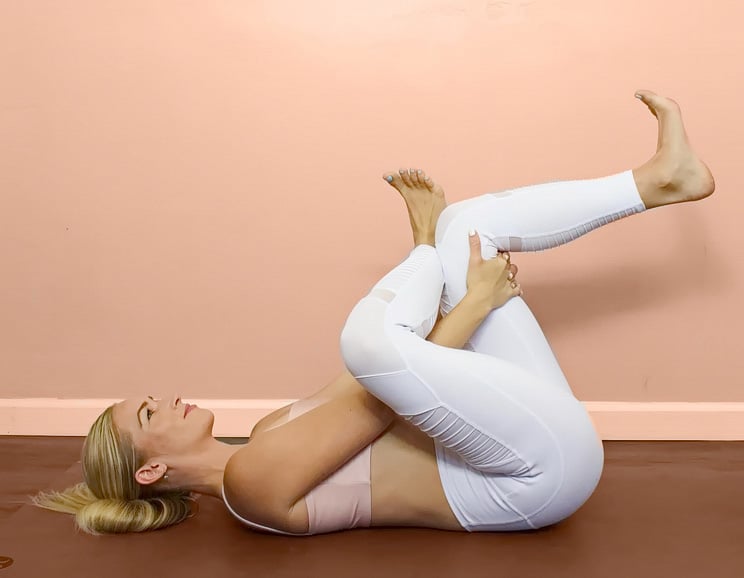
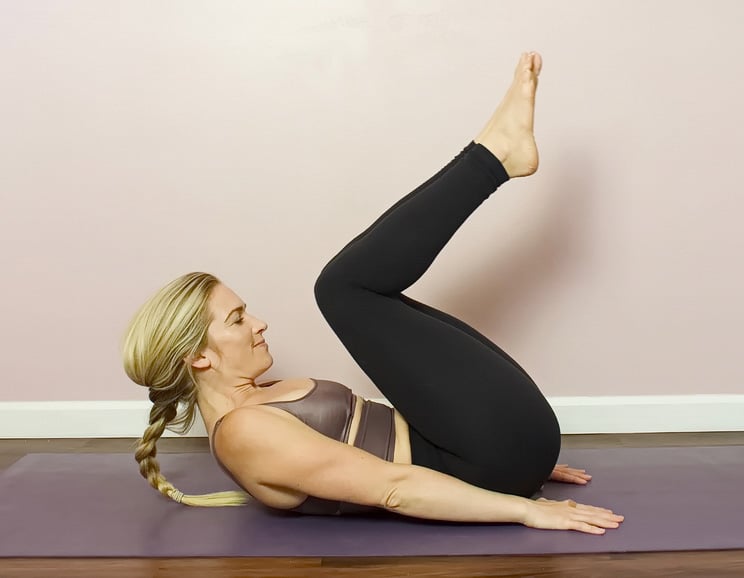
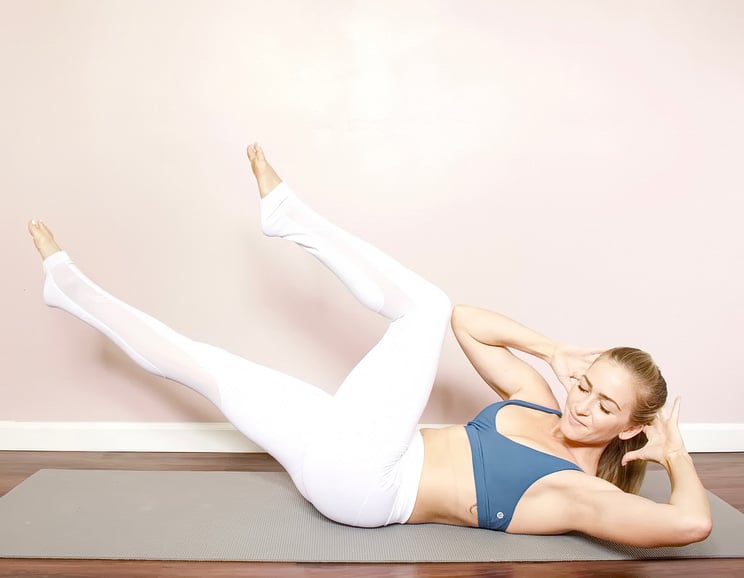
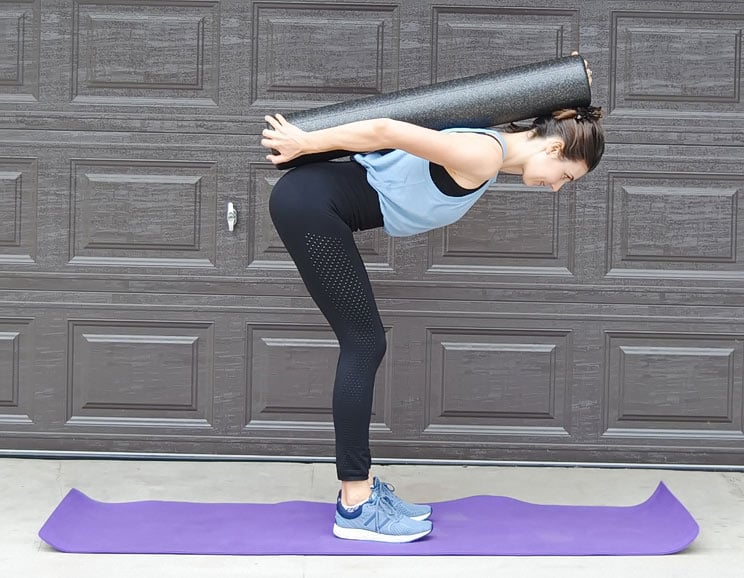
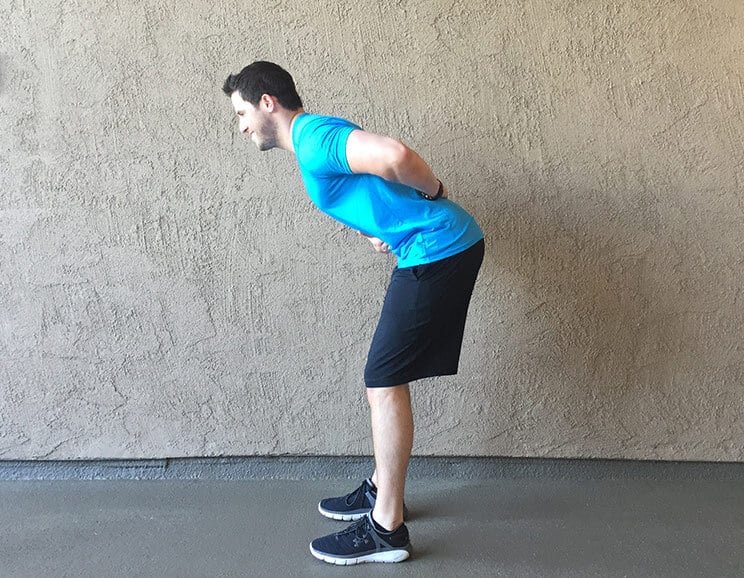

Show Comments